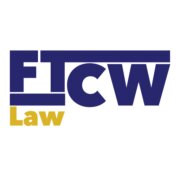Best Domestic Violence Lawyers in Jamaica
Share your needs with us, get contacted by law firms.
Free. Takes 2 min.
Free Guide to Hiring a Family Lawyer
Or refine your search by selecting a city:
List of the best lawyers in Jamaica
About Domestic Violence Law in Jamaica
Domestic violence in Jamaica is a serious concern, impacting individuals across various demographics. This type of violence encompasses physical, emotional, and psychological harm inflicted by one partner upon another in a domestic setting. The Jamaican government has taken steps to address and reduce instances of domestic violence through legislative measures and increased support services. Significant emphasis is placed on protecting victims and holding perpetrators accountable.
Why You May Need a Lawyer
Legal assistance can be crucial for victims and alleged perpetrators of domestic violence for various reasons:
- Filing for Protection Orders: Victims may require legal help to navigate the process of obtaining protection or restraining orders against an abuser.
- Divorce or Child Custody: In cases where domestic violence leads to the dissolution of marriage or affects child custody arrangements, legal representation is essential.
- Criminal Defense: Individuals accused of domestic violence may need a lawyer to defend their rights and manage their legal challenges.
- Understanding Rights and Options: Lawyers help clients understand their legal rights and explore viable options for safety and justice.
- Legal Proceedings: Having an attorney is vital for navigating complex legal procedures and effectively presenting one's case in court.
Local Laws Overview
Jamaican law provides several mechanisms to address domestic violence. Key legislation includes:
- The Domestic Violence Act: This act allows victims to apply for protection orders from the court. Such orders may include prohibitions against the abuser from contacting or harassing the victim.
- The Child Protection and Family Services Agency: Provides protection for children and support for families affected by domestic violence.
- Optional Police Intervention: The police in Jamaica have the authority to arrest and charge perpetrators of domestic violence, deterring further abuse.
- Counseling Orders: Courts may order counseling for perpetrators or victims to address issues related to domestic violence.
Frequently Asked Questions
What is considered domestic violence under Jamaican law?
Domestic violence can include physical assault, psychological abuse, sexual abuse, financial control, and threatening behavior between intimate partners or family members.
What are the penalties for committing domestic violence in Jamaica?
Penalties can range from fines and mandatory counseling to imprisonment, depending on the severity and nature of the offense.
How can I obtain a Protection Order?
You can apply for a Protection Order at the Family Court or Resident Magistrate’s Court. Legal assistance can often help in ensuring the application is processed smoothly.
What should I do if I fear for my safety?
If you are in immediate danger, contact the police immediately. Seek assistance from support organizations and consider obtaining a Protection Order.
Can men be victims of domestic violence?
Yes, domestic violence can affect anyone, regardless of gender, and male victims have the same rights to protection and legal recourse.
Are there shelters available for victims?
Yes, there are shelters and safe houses available in Jamaica offering short-term accommodation and support for victims of domestic violence.
How do I report domestic violence?
You can report domestic violence to the police directly, or seek help from social services or non-governmental organizations dedicated to supporting victims.
What role do the police play in domestic violence cases?
The police can provide immediate protection, file charges against the perpetrator, and assist in obtaining court orders to ensure the victim's safety.
Do I need a lawyer to file a domestic violence case?
While it's not mandatory to have a lawyer, legal representation can significantly aid in understanding the process, your rights, and ensuring proper legal procedures are followed.
Can past abuse be used as evidence in court?
Yes, past incidents of abuse can be relevant and influential in court proceedings, particularly when establishing a pattern of behavior.
Additional Resources
Victims and individuals seeking help can reach out to the following organizations for support and guidance:
- Woman Inc.: Offers crisis shelter services and a 24-hour hotline for victims of domestic violence.
- Bureau of Gender Affairs: Provides resources and support for gender-related issues, including domestic violence.
- Jamaica Constabulary Force: Has a Domestic Violence Intervention Centre equipped to handle cases with sensitivity.
- Victim Support Unit (VSU): Offers emotional support and assists in coping with the trauma of domestic violence.
- Family Court Services: Facilitates legal proceedings concerning family matters, including domestic violence.
Next Steps
If you need legal assistance for a domestic violence situation in Jamaica, consider the following steps:
- Consult a Lawyer: Contact a lawyer specializing in family or domestic violence law to discuss your case and explore legal options.
- Reach Out to Support Services: Connect with local organizations for immediate support and guidance.
- Collect Evidence: Gather any documentation or evidence of abuse, such as photographs, messages, or emails, to support your case.
- Consider Counseling: Counseling can be beneficial for both victims and perpetrators in addressing and overcoming issues of domestic violence.
- Follow Legal Advice: Work closely with your legal representative to ensure all procedures are followed and your rights are protected.
Lawzana helps you find the best lawyers and law firms in Jamaica through a curated and pre-screened list of qualified legal professionals. Our platform offers rankings and detailed profiles of attorneys and law firms, allowing you to compare based on practice areas, including Domestic Violence, experience, and client feedback.
Each profile includes a description of the firm's areas of practice, client reviews, team members and partners, year of establishment, spoken languages, office locations, contact information, social media presence, and any published articles or resources. Most firms on our platform speak English and are experienced in both local and international legal matters.
Get a quote from top-rated law firms in Jamaica — quickly, securely, and without unnecessary hassle.
Disclaimer:
The information provided on this page is for general informational purposes only and does not constitute legal advice. While we strive to ensure the accuracy and relevance of the content, legal information may change over time, and interpretations of the law can vary. You should always consult with a qualified legal professional for advice specific to your situation.
We disclaim all liability for actions taken or not taken based on the content of this page. If you believe any information is incorrect or outdated, please contact us, and we will review and update it where appropriate.
Browse domestic violence law firms by city in Jamaica
Refine your search by selecting a city.













